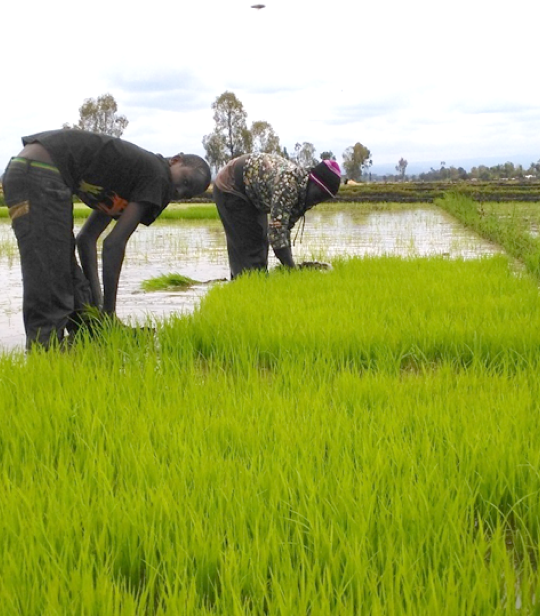Climate Change, Livelihoods and Food Security
Climate change evolves in a complex process that impacts food security and livelihoods systems. It translates from climate to the environment, to the productive sphere, to economic and social dimensions, bringing a range of additional risks on availability of food, on access to food and utilization of food, as well as on the stability of these characteristics, for both farm and non-farm households. At the farm/household level, climate change impacts may reduce income level and stability, through effects on productivity, production costs or prices.
At national level, exposure to climate risks can trigger shocks on agricultural production and food availability, with risks of market disruptions, effects on supply and storage systems, as well as increases in agricultural commodity prices (food and feed), impacting accessibility and stability of food supplies for the entire population. The resource dependent communities suffer the most particularly when there are extreme climate changes resulting to flooding and drought. Such has been witnessed from the inversion of Desert Locust, COVID 19 Pandemic. Beyond the drylands/ rangelands it also triggers macro-economic effects for countries for which agriculture is an important part of GDP and/ or constitutes an important source of employment. Therefore, climatic risks can also hinder agricultural development by discouraging investments.

Building of strong institution through adaptive capacity, scenario building and response mechanisms have the potential for addressing climate change vagaries which often undermine livelihoods systems and opportunities for enhancing food and nutrition security.
RECONCILE seeks to strengthen interventions around this theme promoting use of technology for adaptation and food security building linkages with land and investment. This is in recognition that climate change continues to be a major threat to rural livelihoods globally and across the Eastern Africa Region. The severity of its impact is more pronounced among resource dependent communities especially those living within the Arid and Semi – Arid Lands (ASAL). Communities in these regions have lost or are often in constant risk of losing livestock, crops, and water, among other resources that support their livelihoods. In sum, climate change has altered the quality and productivity of natural resources, putting the integrity of biodiversity and ecosystems at risk, and compromising food security. Environmental sustainability is also at stake, increasing the chances of social conflict, inequalities and gender disparities. Yet resource dependent communities lack technical and institutional capacities needed to respond effectively to the challenges of climate change.